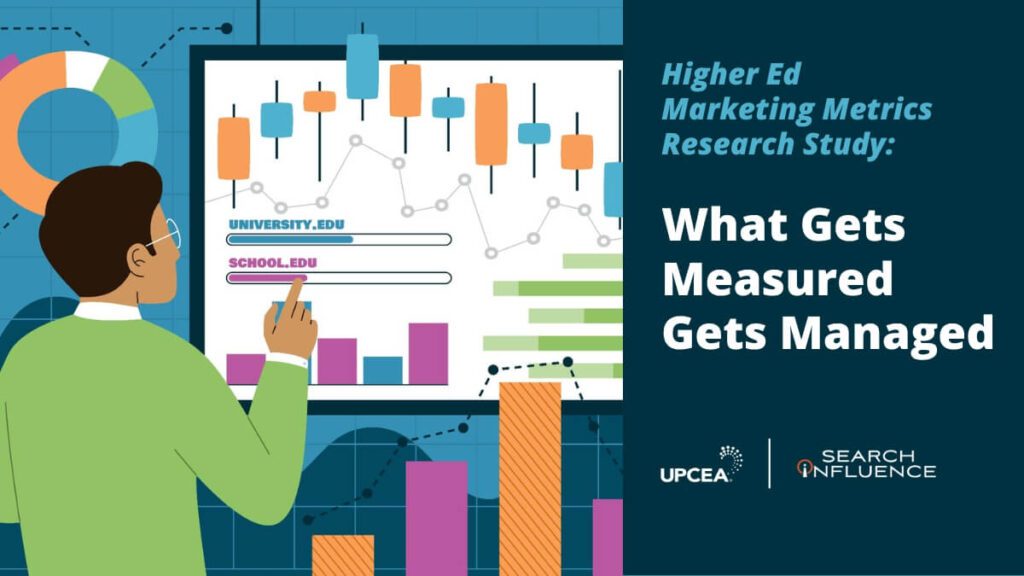Artificial intelligence is rapidly reshaping work across society, and higher education institutions are no exception. Traditionally, discussions around AI in the academy have focused on student-facing issues such as academic integrity and personalized learning. Today’s higher education leaders are called to lead institutional transformation shaped by AI. A new research study from EDUCAUSE conducted in partnership with AIR, NACUBO,…
The Missing Majority: Strategies for Re-engaging Men in Online and Professional Continuing Education
For decades, the narrative in higher education has focused on expanding access. While we have made incredible strides in many areas, a quiet but profound crisis has emerged: the vanishing male student. Across the UPCEA membership, from large public land-grants to private institutions, the data is undeniable. Nationally, women now outnumber men by approximately 60%…
Information and knowledge are growing at an accelerating rate. As we usher graduates out of college, much of their knowledge is useless, already out of date. On Medium, Futurist Jim Carroll writes “In 1900, knowledge doubled approximately every 100 years. By 1945, this rate accelerated to every 25 years, and by 1982, it was every…
When I make presentations about AI, I am most often asked, “What can I do now to ensure that AI doesn’t take my job?” And, that’s a challenge to answer. We do not know just how, and how quickly, AI will roll out. However, a Gallup Poll released last week showed nearly one-quarter of American…
How to Use Technology to Enhance Leadership and Workforce Development
There’s no denying that the landscape of leadership and workforce development has evolved significantly over the past several years. As time progresses, it becomes apparent that technology has an increasingly present role in enhancing the quality and scope of higher education programs. If your institution is seeking practical ways to improve leadership development and educational…
New Distance Education Regulations Proposed by ED Includes Required Attendance-Taking, Additional Reporting – Public Comment Open Until August 23 | Policy Matters (July 2024)
Major Updates New Distance Education Regulations Proposed by ED Includes Required Attendance-Taking, Additional Reporting – Public Comment Open Until August 23 UPCEA Members Take Note, and Make a Comment! The US Department of Education recently released the proposed regulations for Distance Education, Return to Title IV, and TRIO. In another major announcement, they signaled in…
How the Education Department Wants to Police Online Education (Inside Higher Ed)
The Education Department wants to collect much more information about distance education courses and the students enrolled in them as part of a broader effort to increase oversight of online programs. The department’s proposal would require colleges and universities to take attendance in distance education classes, which include those offered online or via correspondence. Institutions…
Major Gaps in Tracking of Higher Ed Marketing Metrics: New Report
Search Influence and UPCEA Establish Higher Ed Marketing Cost Benchmarks in Joint Industry Report NEW ORLEANS, LA., July 30, 2024 — Search Influence, a leading higher education digital marketing agency, and UPCEA, the online and professional education association, announced their co-authored Higher Ed Marketing Metrics Research Report. The study establishes industry-first benchmarks for marketing cost…
The tagline for Convergence, Credential Innovation in Higher Education, raises two important questions: First, what kind of credentials are we talking about? Is the scope of credentials unlimited, blue sky, or confined to incremental changes on the margins of the status quo? And second, who is leading that innovation, and what do they need to…
We are pleased to share the foreword by UPCEA CEO Bob Hansen from the newly released Chief Online Learning Officers’ Guidebook: A Framework for Strategy and Practice in Higher Education. The guidebook, now available from Routledge in paperback, hardback, and eBook formats, provides a comprehensive framework for today’s online learning leaders. Learn more and purchase…
Community colleges play a vital role in helping learners access affordable education and career-ready training. Students can earn credentials that lead to meaningful jobs quickly, especially in healthcare. Yet for many, financial stress and unmet basic needs make it difficult to enroll or stay enrolled. These barriers often weigh heaviest on part-time, nontraditional, first-generation, and low-income…
The student journey has changed — and expectations are rising. Students today are moving faster, arriving more informed, and expecting experiences that feel responsive and personalized. Research behaviors are shifting, and AI is increasingly shaping how prospective students discover and evaluate programs. The path to enrollment is becoming more complex and more personalized, and students…

